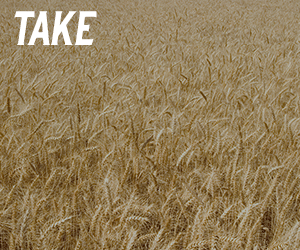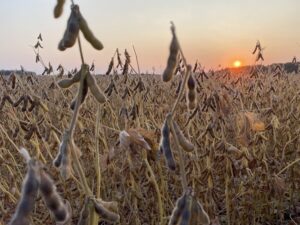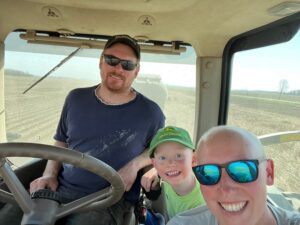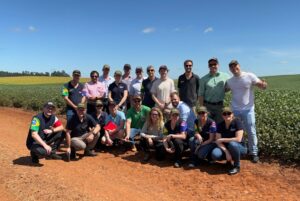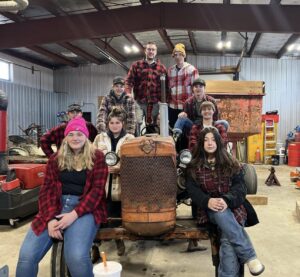The problem solvers: Dr. Adrian Correndo
SERVING AGRICULTURE THROUGH DATA
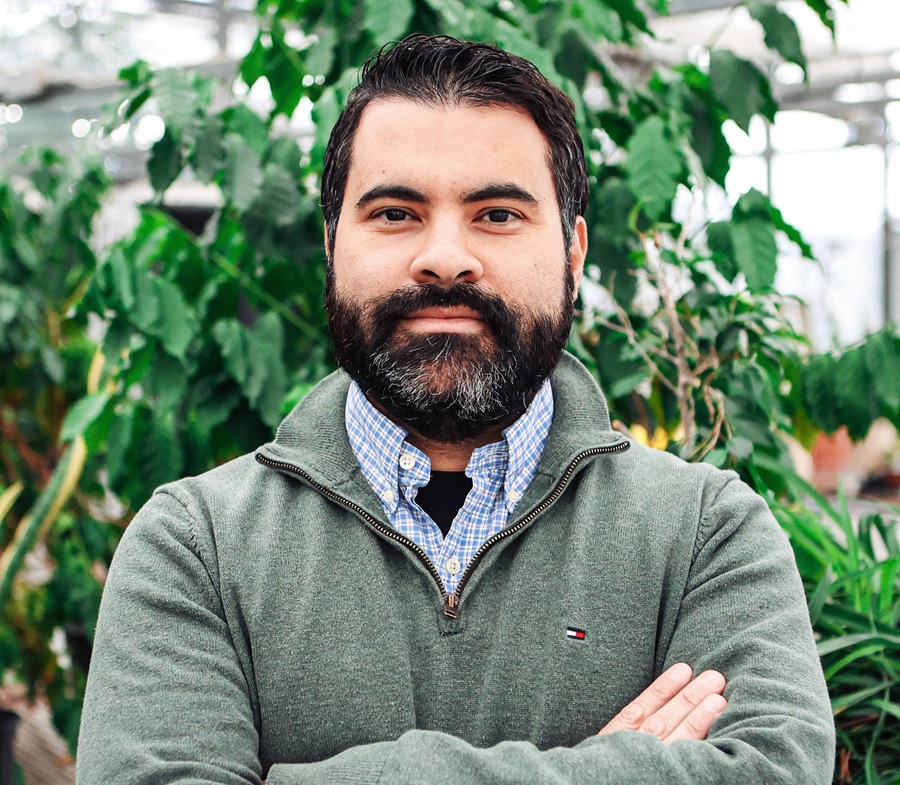
DR. ADRIAN CORRENDO, WHO RECENTLY BEGAN AT THE UNIVERSITY OF GUELPH AS AN ASSISTANT PROFESSOR AND RESEARCH CHAIR for The Pick Family Chair in Sustainable Cropping Systems, was definitely born into the right time. “I want to put modern data analytics into the service of our farmers,” he says. “I’m very passionate about using data and digital tools to identify and promote the best management practices for sustainable crop production.”
Correndo grew up in Argentina and obtained his undergraduate and master’s degrees at Universidad de Buenos Aires. He finished his PhD at Kansas State University and did a year of post-doctoral research there before moving to Guelph with his family in 2023. However, his attraction to agriculture started at a very young age. “It has a lot to do with my father, Pedro, and his entrepreneurial spirit,” says Correndo. “He always rented farmland and had small projects, growing some corn, feeding our own cattle. His projects during my childhood helped me to develop a strong relationship with agriculture. Years later, when deciding on a career, I just had to read the University’s ‘agronomy plan of study’ once, and I knew it was my calling.”
HELPING FARMERS
Over the next few years, he aims to create interactive dashboards so that agronomists, farmers and others can use research results more efficiently. In addition, he wants to help refine the recommendations for managing nitrogen, phosphorus, and potassium in the production of Ontario’s main crops. Also, over the next few years, he aims to better understand the role of cover crops in plant- soil nutrient dynamics.
“Over the longer term, at the cropping system level, the effect of key practices such as tillage and crop rotation requires time to be appropriately assessed, for example, to establish soil carbon trends,” Correndo explains. He considers the multiple long-term trials at the Elora Research Station to be very valuable, where management practices such as tillage, crop rotation, cover crops, and fertilization management have been studied over many years.
However, on-farm research is also an essential tool for investigating crop management practices and getting recommendations out to farms. “Challenges to this are variable equipment, data collection, and analysis,” says Correndo, “but we certainly need to move more toward this type of research using real scenarios. Extreme weather events can be a challenge, however. Many times, if the weather causes failure of a new crop or a cover crop the year farmers try it, they will be discouraged to try it again. This is why we need both on-farm and long-term data.”
Correndo also sees more education of agronomists to be important in the adoption of new and better cropping practices. “Farmers are the stewards of the land, and agronomists should be the stewards of the data,” he says. “However, data literacy and applied programming education is still very limited. Agronomists capable of understanding and managing large amounts of data will make a clear difference.”
TECHNOLOGY ADVANCES
As Correndo develops new tools for farmers, he’s incorporating the latest developments. Advances in computing capacity, for example, are enabling him and his colleagues to use Bayesian statistics. “This, in my opinion, brings significant opportunities to explore the real world of risk and uncertainties that face farmers,” he says. “It’s a must for moving towards more realistic decision frameworks for farmers based on probabilities rather than on trying to provide magical ‘true values’ for rate of seed, fertilizer, and other factors.”
The latest developments — this time in programming — will also inform Correndo’s work to develop interactive dashboards for sharing data and research results with agronomists, farmers and others. “I am very excited to take an active role in creating these ‘open access dashboards’ that will help farmers make more informed decisions,” he says. “It will mean sharing results in a much more efficient and dynamic manner compared to classic static outcomes like reports.”
Correndo is also focused on achieving improvements in research results. “We could say that classic research is at the core based on explanatory models, which simply ‘explain’ what already happened,” he says. “This helps us understand patterns in a simplified way but doesn’t predict anything. Here, modern analysis techniques like machine learning provide opportunities to read intricate interactions between factors – which is exactly what occurs in agriculture – and to develop models that can forecast instead of just explaining. There are exciting days ahead.” •


